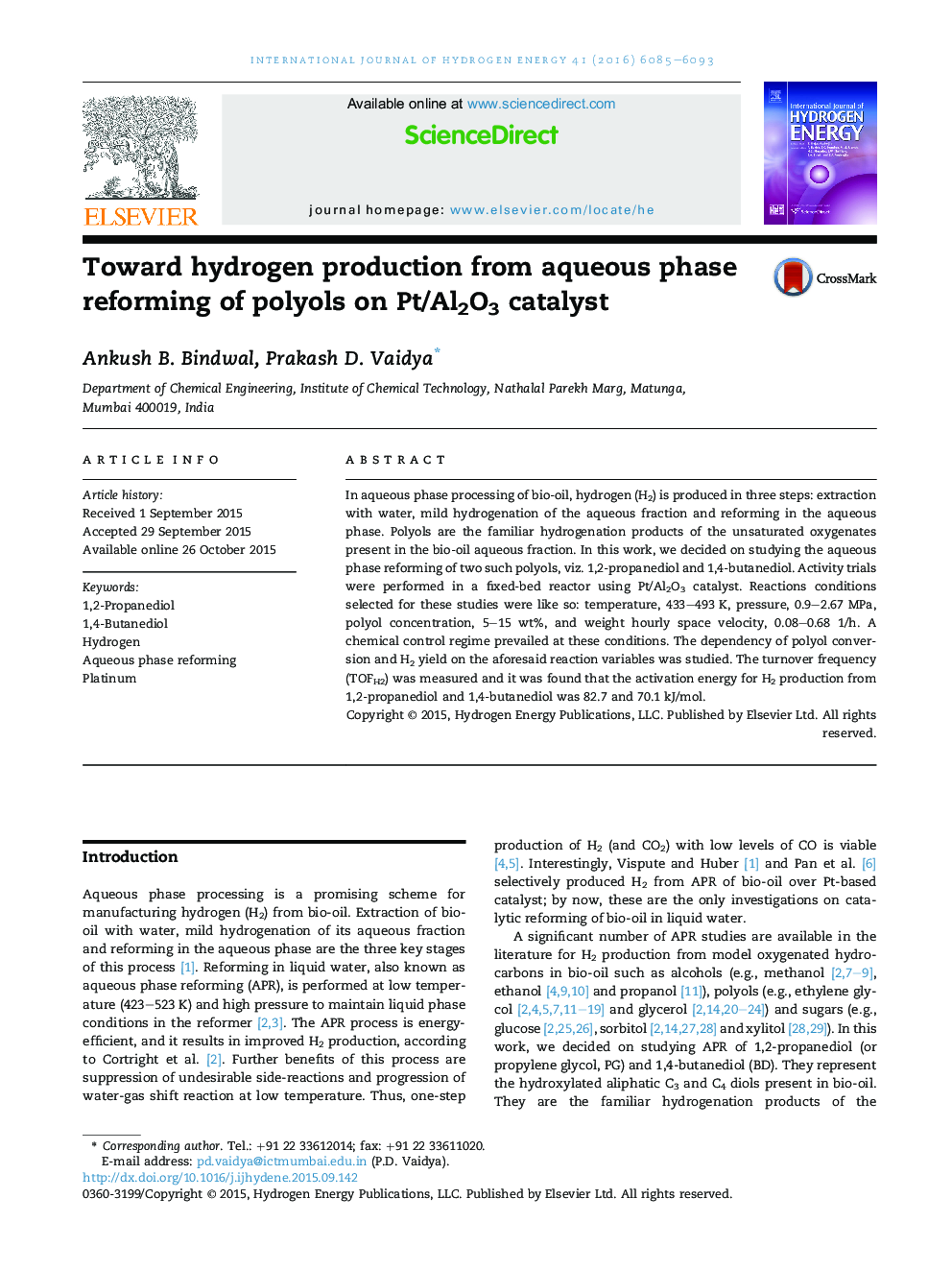| Article ID | Journal | Published Year | Pages | File Type |
|---|---|---|---|---|
| 1273614 | International Journal of Hydrogen Energy | 2016 | 9 Pages |
•Aqueous phase reforming of two polyols, 1,2-propanediol and 1,4-butanediol, was studied.•Activity trials were performed in a fixed-bed reactor using Pt/Al2O3 catalyst in the 433–493 K range.•A chemical control regime prevailed at the investigated reaction conditions.•Activation energy for H2 production from 1,2-propanediol and 1,4-butanediol was 82.7 and 70.1 kJ/mol.
In aqueous phase processing of bio-oil, hydrogen (H2) is produced in three steps: extraction with water, mild hydrogenation of the aqueous fraction and reforming in the aqueous phase. Polyols are the familiar hydrogenation products of the unsaturated oxygenates present in the bio-oil aqueous fraction. In this work, we decided on studying the aqueous phase reforming of two such polyols, viz. 1,2-propanediol and 1,4-butanediol. Activity trials were performed in a fixed-bed reactor using Pt/Al2O3 catalyst. Reactions conditions selected for these studies were like so: temperature, 433–493 K, pressure, 0.9–2.67 MPa, polyol concentration, 5–15 wt%, and weight hourly space velocity, 0.08–0.68 1/h. A chemical control regime prevailed at these conditions. The dependency of polyol conversion and H2 yield on the aforesaid reaction variables was studied. The turnover frequency (TOFH2) was measured and it was found that the activation energy for H2 production from 1,2-propanediol and 1,4-butanediol was 82.7 and 70.1 kJ/mol.
